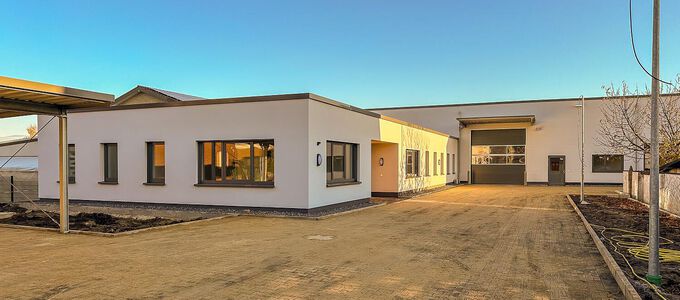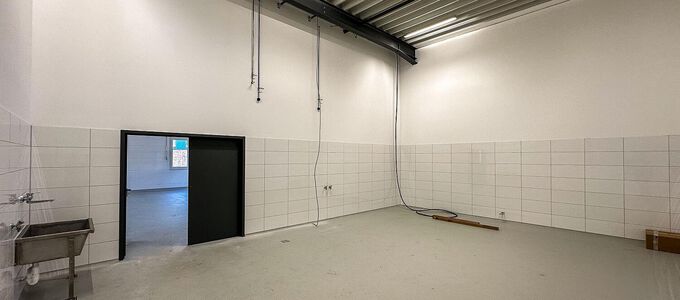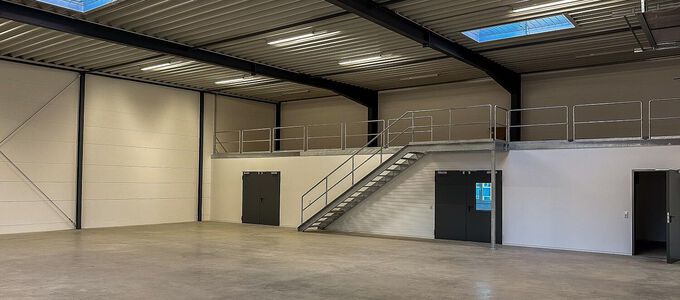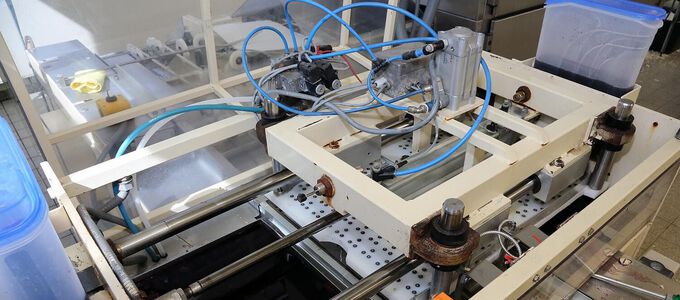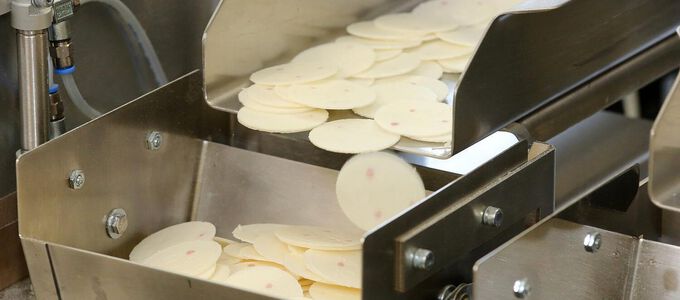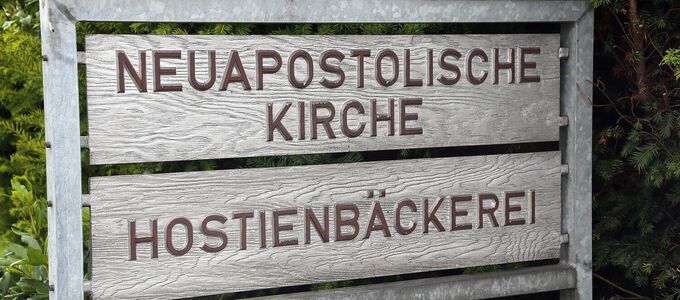
It is the mother of all New Apostolic wafer bakeries: the bakery in Bielefeld, Germany, is taking a technical leap into the future, even if it is only 150 metres. The 4.5 million euro project will ensure an adequate supply of communion wafers in sixty countries.
The wafer bakery in Bielefeld is currently operating from rented premises. It’s own premises, a former tailor’s shop, a building from the 1970s, are getting on in years and would require extensive renovations. The same applies to the machinery, much of which is 33 years old. “It’s simply worn out and technically completely outdated,” Michael Block says, head of the wafer bakery. Repairs are becoming increasingly expensive and time-consuming.
Move to the church grounds
A new production building was required to meet today’s standards. The property of one of our former churches in Bielefeld was ideal for this purpose. It is located just 150 metres from the current production site.
“We couldn’t use the former church, however. It was too small for all the baking machinery and equipment,” Michael Block says. The deconsecrated church was demolished in April 2023. A general contractor then began work on a modern production hall with the necessary storage, office, and social spaces.
Interior work in December
The final work is currently underway and the building is already nearing completion. The installation of the machines and storage silos will start at the end of November. Michael Block is delighted about the new production facility: “We are getting reliable baking equipment in a functional and sufficiently large building that meets today’s standards.”
The Church also has sustainability in mind: a photovoltaic system has been installed on the production building with the aim of maximising its own use. The building is also appropriately insulated and heated by two heat pumps.
Gluten-free wafers still made by hand
For the first time, there will also be a separate production area for gluten-free wafers in the new building, separated from the wheat flour production. Due to the small quantities, these wafers will continue to be produced with a manual waffle iron and a historical punching machine.
Gluten is the name for the proteins that help food retain their shape, acting as a glue and holding dough together. But not everyone can tolerate this gluten. Some people have an allergic reaction, some get really sick from it. Weight loss, depression, developmental disorders: these are just some of the symptoms of celiac disease. Even a small dose of flour can trigger reactions. The New Apostolic Church has therefore been offering gluten-free wafers for more than 38 years.
Test production at the beginning of 2024
The relocation of production is planned for around the turn of the year. The parts of the existing machinery that were modernised in 2016 will continue to be used. The baking system and the conditioning tunnel, in which the baked wafers are exposed to steam so that they do not crumble during the punching process, will be replaced. New silo and bin technology is also being installed to store the wheat flour required for production and any food residue. The latter is sold and processed into animal feed.
Test production is due to start in January and regular operations will resume as soon as possible afterwards, Michael Block says.
Investment in the future
Whether the flavour of the wafers will change with the new baking machine remains to be seen. “We won’t know until the first tests have been run,” Michael Block says. We don’t expect it, he says, as the ingredients do not change. The improved moisturisation could result in slight nuances in the consistency, however.
The New Apostolic Church Western Germany is investing around 4.5 million euros in the new building and the production facility. This will ensure that New Apostolic congregations in sixty countries will continue to be supplied with wafers. The furthest congregations receiving wafers from the German production site are in American Samoa and the Fiji Islands.
Bakeries all over the world
The production of wafers has been an issue since the New Apostolic Church introduced its own form of communion elements in 1919, namely wafers sprinkled with wine.
At first they were all hand-made: members would sit around the kitchen table and, using an eyedropper, apply wine to hundreds of wafers—enough to supply their congregation. Soon a priest and master baker from Herne, Germany, helped to professionalise the process.
The Church has been producing wafers in Bielefeld for Holy Communion in our New Apostolic congregations since 1931. Today there are wafer bakeries in Bengaluru in India, Lusaka in Zambia, Cape Town in South Africa, and two in Uruguay.






